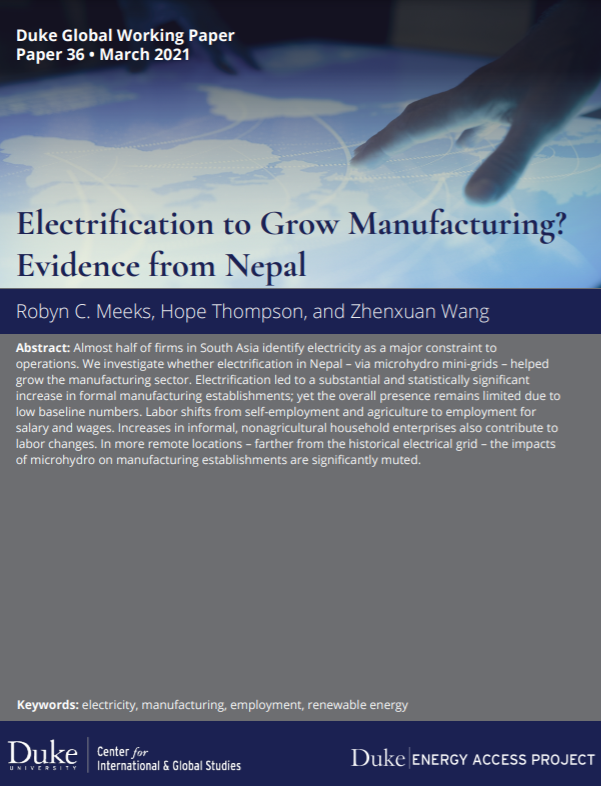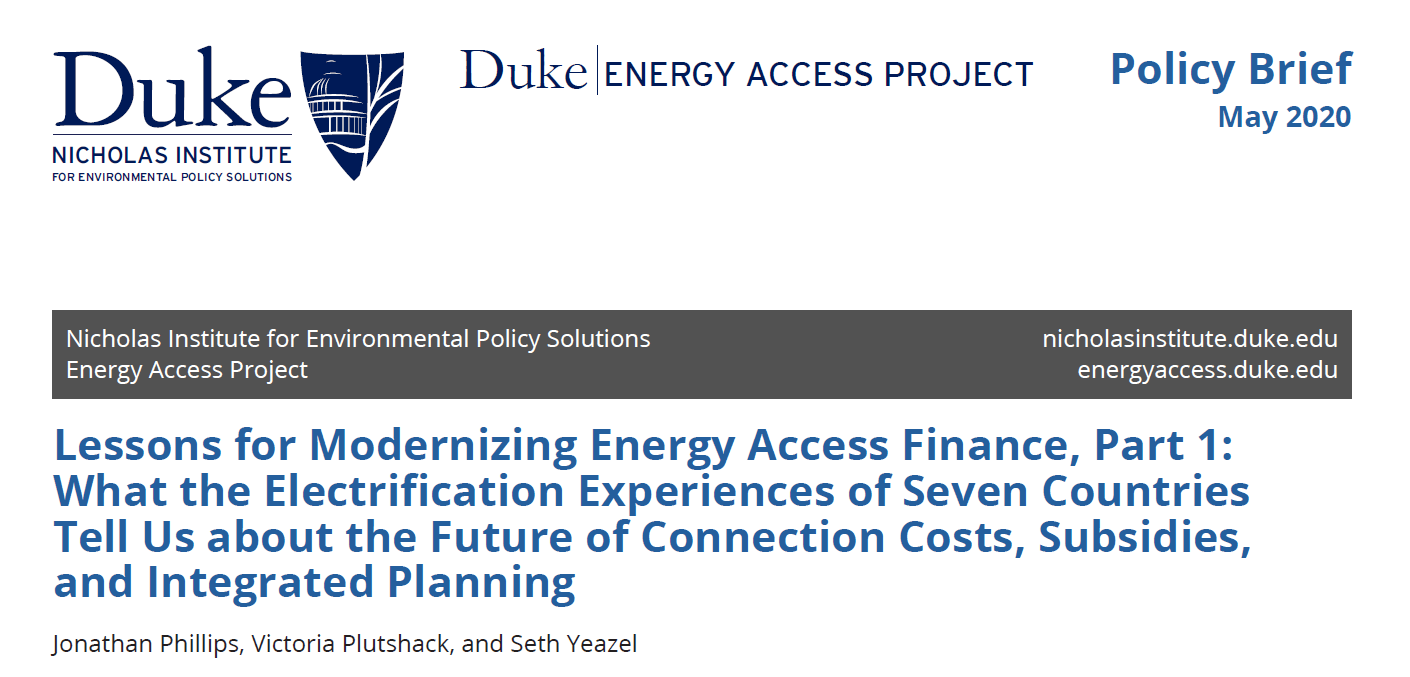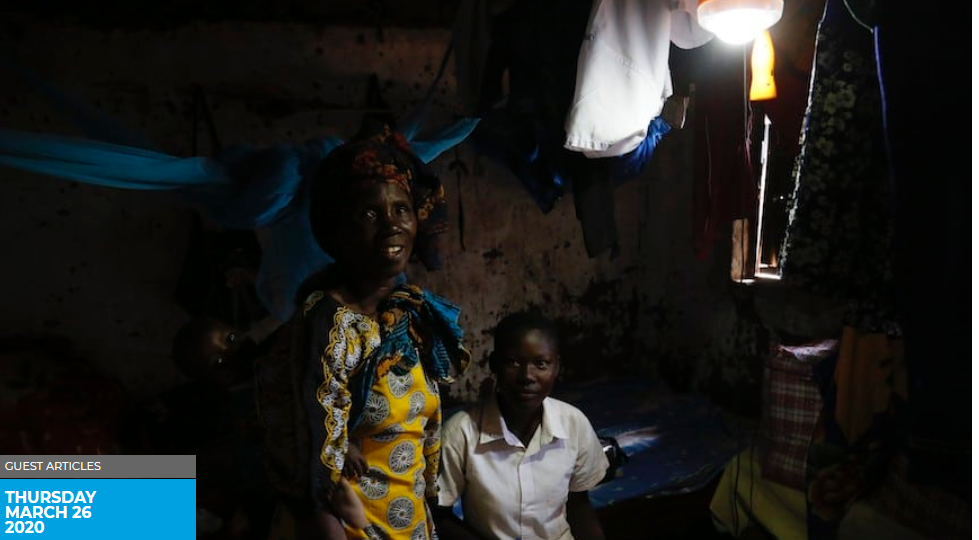In the News

Quantitative News
Global Assessment of Electricity in Healthcare Facilities
The Global Assessment of Electricity in Healthcare Facilities provides a comprehensive update on the status and key actions needed for providing reliable, modern energy to health-care facilities in low- and middle-income countries.
New Working Paper: Electrification to Grow Manufacturing? Evidence from Nepal
In the inaugural working paper of our new series, Robyn Meeks and co-authors explore the impacts that access to electricity through microhydro in Nepal has on labor and manufacturing.
New Blog! Lessons from the proliferating mini-grid incentive programs in Africa
As governments put in place incentives to scale up mini-grid deployment, our team has reviewed 20 mini-grid programs in sub-Saharan Africa, in order to pull out some initial lessons.
Benefits of Action to Reduce Household Air Pollution (BAR-HAP) Tool
Two of our team members, Marc Jeuland and Ipsita Das, assisted in developing the WHO Benefits of Action to Reduce Household Air Pollution (BAR-HAP) Tool, which is a planning tool for assessing the costs and benefits of different interventions to address the global burden of disease associated with cooking-related household air pollution.
Harnessing Data Analytics to Accelerate Energy Access: Reflections from a Duke-RTI Convening on Data for Development
This document presents a vision and summary of how development and scaling of new tools, and application of big data analysis principles, have the potential to transform energy systems planning, policy design and implementation, and investment decisions.
An off-grid energy future requires learning from the past
The more things change, the more they stay the same. EAP’s latest in the Brookings Future Development blog explores the electrification experiences of seven countries, their program costs and the subsidies required to bridge the gap between the cost of providing last-mile electricity and what poorer customers are able to pay.
New Publication: Lessons for Modernizing Energy Access Finance, Part 1
Countries facing electricity access challenges today have more options and potential electrification pathways than ever before, but the initial cost of connecting new rural customers remains an expensive proposition. This brief explores the successful rural electrification experiences of seven case countries—Brazil, Chile, Laos, Peru, South Africa, Thailand, and Tunisia—looking specifically at the cost of connections and how subsidies and public financing were deployed to address the affordability challenge and facilitate energy access.
New Data and Technologies are Transforming Energy Access
Technologies like geospatial imagery, machine learning and affordable batteries are generating ever more innovative ways to target customers with off-grid energy solutions. But according to analysts at the Duke University Energy Access Project, public policy is struggling to keep up with these rapid-fire developments, leaving vast amounts of human capacity and productivity untapped. They explore how to address this disconnect between government and the private sector.









